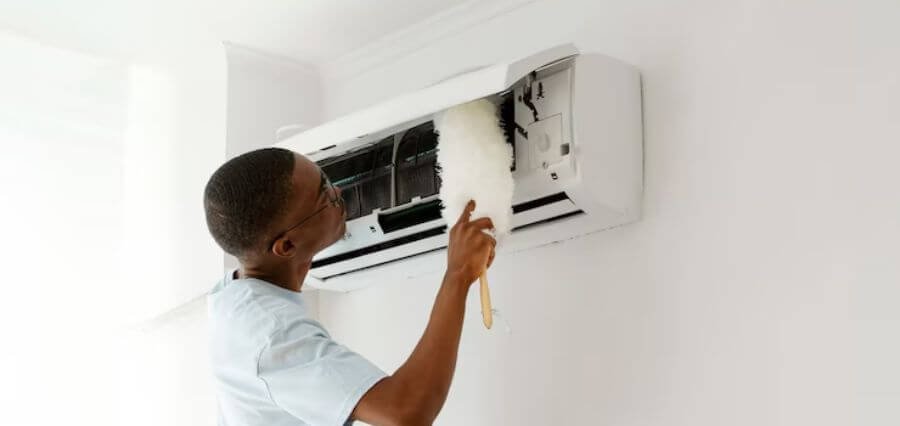Air conditioning systems are crucial for keeping homes comfortable, especially during the intense heat of summer. Regular maintenance is key to ensuring your AC unit functions efficiently and lasts as long as possible. In this post, we will discuss expert insights on how often you should schedule air conditioner maintenance, along with practical tips and important considerations to keep in mind.
- Why Regular Maintenance Matters
Regular maintenance is vital for keeping your air conditioning system running efficiently and preventing breakdowns. Just like a car needs oil changes and tune-ups, your AC unit requires routine checks to avoid costly repairs and ensure consistent performance. Maintenance not only enhances the longevity of the unit but also improves energy efficiency, which can lead to lower utility bills. Moreover, routine inspections help detect potential issues early, saving you from more expensive fixes down the line.
- Manufacturer Recommendations
Most AC manufacturers recommend that you service your air conditioning system at least once a year. This annual service typically includes a comprehensive inspection, cleaning, and testing of crucial components such as filters, coils, and refrigerant levels. Following these guidelines is essential, as neglecting recommended maintenance can void your warranty. Additionally, staying aligned with the manufacturer’s suggestions ensures that your system operates at peak efficiency, reducing the risk of breakdowns during peak seasons.
- Ideal Times for Maintenance: A Seasonal Guide
The best time to schedule AC maintenance in Plano, TX, is during the spring, right before the cooling season begins. This timing allows your technician to address any potential issues before the heat of summer places more stress on the system. For residents in hot climates or regions with intense humidity, it may be beneficial to schedule biannual maintenance—one before the cooling season and another in the fall. This additional check helps ensure optimal performance during extended periods of use.
- Warning Signs That You Need More Frequent Maintenance
Although annual maintenance is often sufficient, certain signs may indicate that your AC requires more frequent servicing. Look out for the following red flags:
– Unusual Noises: Strange sounds like banging, hissing, or rattling suggest internal problems that need immediate attention.
– Decreased Airflow: If your AC isn’t delivering strong airflow, there could be an issue with the ducts, filters, or the system’s motor.
– Increased Energy Bills: A sudden spike in energy consumption without a change in usage patterns is often a sign that your AC is working harder than it should be, indicating a need for maintenance.
By addressing these symptoms early, you can avoid larger repairs and keep your unit running smoothly.
- Factors Influencing Maintenance Schedule
Several factors determine how often you should schedule the maintenance, including:
– System Usage: If you rely on your AC heavily, such as in larger homes or in areas with extreme temperatures, more frequent maintenance is necessary.
– The Age of the Unit: Older AC systems tend to require more frequent check-ups and repairs as components wear down over time.
– The Environment: Living in a hot, humid, or dusty environment can increase the need for maintenance, as these conditions put more strain on the system.
– Pets and Allergies: Homes with pets or allergy-prone individuals may need more frequent filter changes and cleanings to maintain indoor air quality.
- The Benefits of Preventive Maintenance Plans
Many HVAC companies offer preventive maintenance plans that provide biannual inspections, priority service, and discounts on repairs. Signing up for one of these plans ensures that your AC system receives timely check-ups, reducing the likelihood of sudden breakdowns. A preventive plan also establishes a relationship with a trusted technician who becomes familiar with your unit’s history, leading to more personalized service and better performance over time.
- Essential DIY Maintenance Tips for Homeowners
While professional maintenance is important, there are several DIY tasks homeowners can perform to keep their AC systems running efficiently:
– Change Air Filters Regularly: To maintain good airflow and efficiency, replace or clean your AC filters every 1-3 months.
– Keep the Outdoor Unit Clean: Clear the outdoor condenser unit of debris such as leaves, dirt, and grass to allow for better airflow.
– Monitor Thermostat Settings: Ensure your thermostat is functioning properly and consider upgrading to a programmable model to better manage energy usage.
These simple tasks can reduce the strain on your system and extend its lifespan, minimizing the need for emergency repairs.
Scheduling maintenance after the AC installation is essential to keeping your system running at its best, saving energy costs, and avoiding unexpected breakdowns. While annual maintenance is typically sufficient, factors such as heavy usage, the age of the unit, and local climate conditions may necessitate more frequent check-ups. By adhering to manufacturer guidelines and taking a proactive approach to maintenance, you can ensure your air conditioning system remains in peak condition for years to come.
Don’t wait for your AC to fail in the middle of summer! Schedule your maintenance appointment with ABC Heating & Air today to ensure your system is ready to handle the upcoming season. Contact our expert technicians for a comprehensive inspection and preventive care that keeps your home cool and comfortable.
FAQs
- How often should I change my air conditioner filters?
It’s recommended to change or clean your AC filters every 1-3 months, depending on the type of filter and environmental factors like pets, dust, and pollen.
- What happens if I skip maintenance?
Skipping maintenance can lead to reduced efficiency, higher energy bills, and a higher risk of system breakdowns. Over time, neglecting maintenance may also void your warranty. Regular maintenance helps ensure long-term performance and reduces the likelihood of costly repairs.














